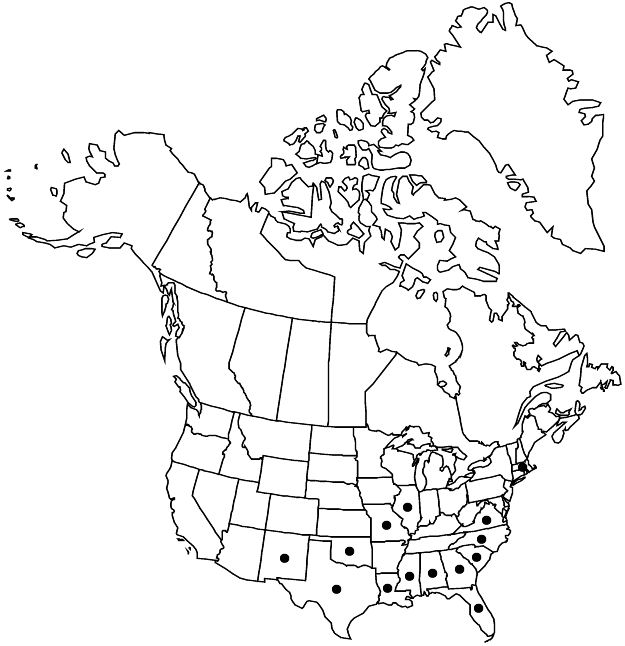Gossypium hirsutum
Sp. Pl. ed. 2, 2: 975. 1763.
Plants 1–2 m, usually widely branching. Stems terete, stellate-hairy. Leaves: stipules subulate to falcate, 5–15 (–20) mm; petiole terete, 1/2 to as long as blade; blade shallowly 3–5-lobed, lobes broadly ovate, 4–10 cm, membranous, base cordate, apex acute to acuminate, surfaces glabrous or hairy. Inflorescences: flowers usually sympodial. Pedicels 2–4 cm, with 3-merous involucellar nectaries; involucellar bractlets persistent, foliaceous (enclosing bud), broadly cordate-ovate, 2–4.5 cm, margins laciniate. Flowers: calyx 5–6 mm (excluding teeth, if present), apex truncate or 5-toothed; petals cream, with or without red spot, 2–5 cm; staminal column 15 mm, glabrous; style somewhat exceeding androecium; stigmas 3–5. Capsules 3–5-locular, broadly ovoid or subglobose, 2–4 cm, smooth, glabrous. Seeds 8–10 mm, comose, hairs (cotton) usually white. 2n = 52.
Phenology: Flowering year-round.
Habitat: Littoral vegetation, cultivated fields
Elevation: 0–20 m
Distribution

Introduced; Ala., Fla., Ga., Ill., La., Mass., Miss., Mo., N.Mex., N.C., Okla., S.C., Tex., Va., Central America, nearly worldwide
Discussion
Gossypium hirsutum is part of the littoral vegetation in the Florida Keys and around the coasts of the Gulf of Mexico and the Caribbean Sea. The species is found also as the dominant agricultural crop of the Cotton Belt, from California to the Carolinas; it is cultivated worldwide in suitable climates. The species may be found also as an escape, or from cotton mulch used in gardens or from waste around areas of cotton agriculture (fields, gin yards, roadsides, and other places).
Selected References
None.